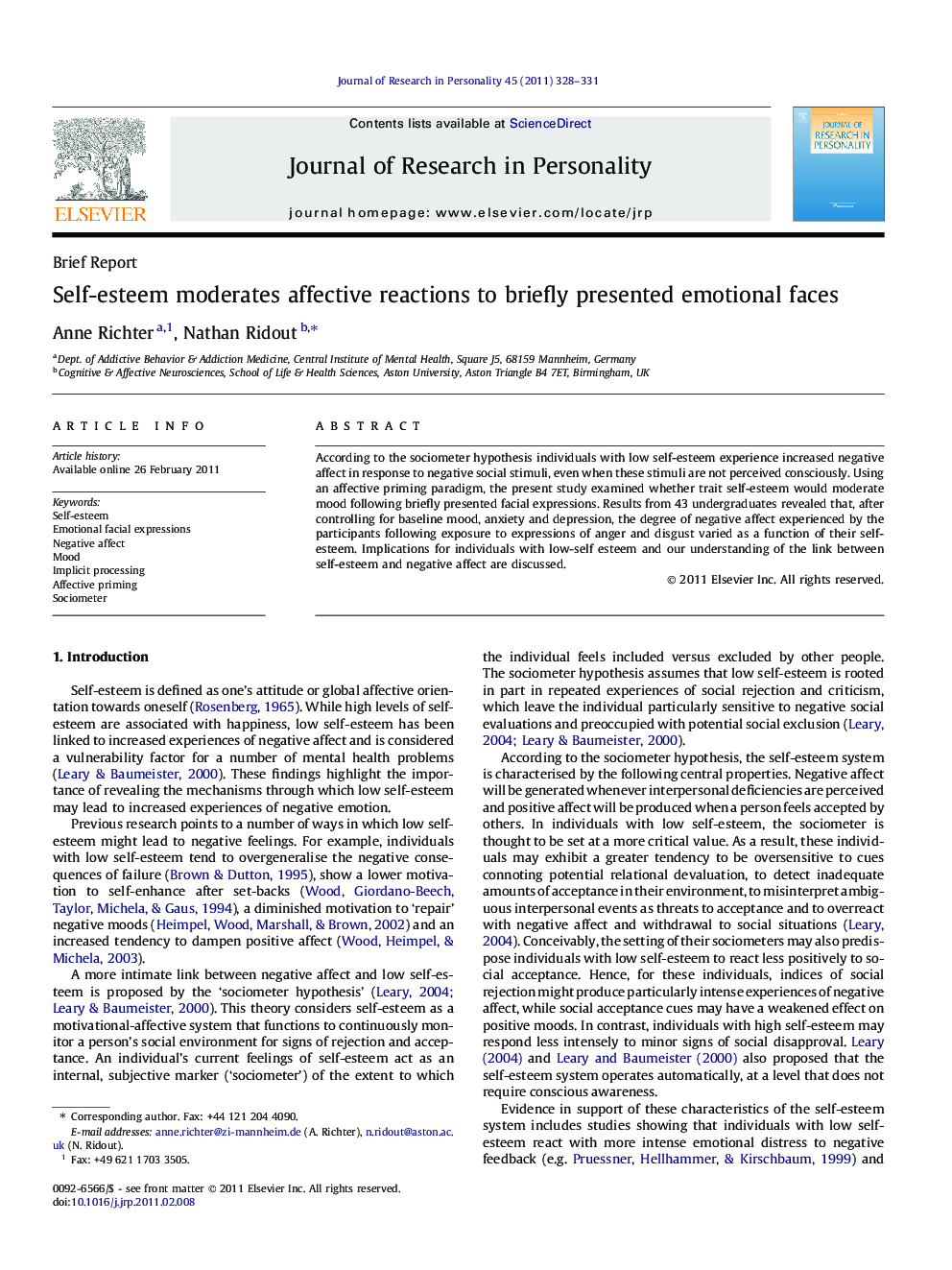| Article ID | Journal | Published Year | Pages | File Type |
|---|---|---|---|---|
| 951577 | Journal of Research in Personality | 2011 | 4 Pages |
According to the sociometer hypothesis individuals with low self-esteem experience increased negative affect in response to negative social stimuli, even when these stimuli are not perceived consciously. Using an affective priming paradigm, the present study examined whether trait self-esteem would moderate mood following briefly presented facial expressions. Results from 43 undergraduates revealed that, after controlling for baseline mood, anxiety and depression, the degree of negative affect experienced by the participants following exposure to expressions of anger and disgust varied as a function of their self-esteem. Implications for individuals with low-self esteem and our understanding of the link between self-esteem and negative affect are discussed.
